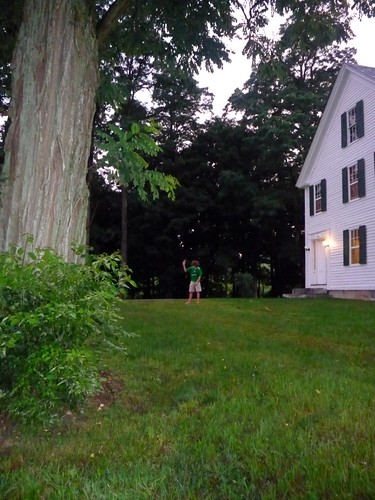What happens if Australia votes No to the Voice referendum? Peter Dutton thinks Jacinta Price holds the answer
Dutton #Dutton

As the Voice referendum campaign grinds towards its final week, there’s at least now agreement on one thing: The current system isn’t delivering for Indigenous Australians.
“What we’ve got at the moment is not working,” Opposition Leader Peter Dutton acknowledged in Perth this week. It may be a statement of the obvious, but this is also an important concession.
The Liberal leader accepts the need for a new and different approach to deliver “a better situation for Indigenous Australians”.
So, if the Voice isn’t the solution, as Dutton argues, what is? How will Australia tackle Indigenous disadvantage if the majority vote No to the Voice on October 14? What is the alternative pathway?
Given the polls all suggest a No vote is the most likely outcome, the answer is surprisingly unclear.
For his part, the prime minister doesn’t want to canvass what might happen in the event of a No vote, for the understandable reason that he’s still trying to convince as many people as possible to vote Yes.
If Australians ultimately reject the Voice proposal, Anthony Albanese will have to come up with something. Doing nothing is untenable.
The greater obligation to spell out an alternative solution, however, should be on Dutton right now, given he’s the one advocating a No vote. The opposition leader has certainly been effective in attacking the Voice proposal, but what he thinks should be done instead remains vague and constantly evolving.
Dutton’s new solution
Six months ago, when the Liberal party room resolved to support a No vote, Dutton’s preferred alternative was to create local and regional Voice bodies in legislation. He said these bodies would “listen to those local elders who live in the community and to listen to what is going to make a practical outcome”.
The opposition leader doesn’t talk much about that idea now. The notion of multiple Indigenous bodies tends to muddy the No campaign line about the Voice creating division. And the Nationals aren’t terribly keen on the idea anyway.
This week, Dutton settled on a far simpler solution for tackling the problems of entrenched Indigenous disadvantage: Jacinta Nampijinpa Price.
Senator Jacinta Nampijinpa Price’s influence within the Coalition has grown over the course of the Voice campaign.(ABC News: James Carmody)
“I believe very strongly if Jacinta Price is the Minister for Indigenous Australians, we will get better outcomes for Indigenous Australians and that will be a great day for our country,” he enthused. It’s apparently that easy.
The former Coalition minister for Indigenous Australians Ken Wyatt “was full of good intent and did lots of good things”, according to Dutton, but he argues Price has a “practical understanding of what’s going on in communities”, pointing to her lived experience in Alice Springs.
Dutton is putting great faith in his shadow minister, whose influence within the Coalition has grown enormously through the course of this campaign.
Price has endeared herself to conservative colleagues by railing against the Voice. They cheered from the front row when she told the National Press Club there are “no ongoing negative impacts of colonisation”.
But beyond all that, how exactly would Price deliver “better outcomes” for Indigenous Australians?
That’s less clear.
LoadingAnnouncements incoming
The shadow minister’s main idea appears to be a “forensic audit” of money spent on First Nations people to prevent waste. She’s been calling for such an audit for months, managing to generate some fresh headlines again this week.
The idea is hardly new. Indeed, the Australian National Audit Office held regular audits of various spending programs and the Productivity Commission conducted a major review during the Coalition’s time in office. The gap in disadvantage still hasn’t been closed.
Support for Indigenous Australians
Beyond holding yet another review, the opposition leader says he will have “announcements to make in relation to other policies” to deal with Indigenous disadvantage, but only after the referendum. We’ll see. One wonders why any policy ideas to help the nation’s most disadvantaged need to be held back.
Yes campaigner Noel Pearson certainly doesn’t think Price, or anyone else for that matter, has a magic alternative solution.
“There is no plan B,” he told 3AW’s Neil Mitchell this week. “Mate, I have been at this for 30 years working on these problems from the ground up, and I’m telling you that there is no plan B. No will be a disaster for all of us. We will all lose, including the No campaigners. We will lose. If we vote Yes, we’ll all win, including the No campaigners.”
If Australians ignore Pearson and vote No, the prime minister has pledged to accept the outcome. He’ll have to find a plan B. Legislating the Voice hasn’t been completely ruled out.
With nine days to go in this campaign, many Australians may be confused or wary about voting Yes. They may be persuaded by the No campaign message about entrenching division in the constitution.
But when it comes to fixing Indigenous disadvantage, it’s still the only plan on the table to fix a system both sides of politics agree is broken.
Voters are in the dark about any alternative.
David Speers is National Political Lead and host of Insiders, which airs on ABC TV at 9am on Sunday or on iview.
Loading…